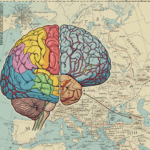Symptoms of Neurotransmitter Imbalances
Imbalances in neurotransmitter levels can lead to a variety of symptoms that can significantly impact an individual’s quality of life. One of the most common symptoms is anxiety, which can manifest as persistent worry, fear, and panic attacks. Anxiety disorders are often associated with imbalances in neurotransmitters such as serotonin, GABA, and norepinephrine.
Another common symptom of neurotransmitter imbalances is depression, which can cause feelings of sadness, hopelessness, and loss of interest in activities that were once enjoyable. Imbalances in neurotransmitters such as serotonin, dopamine, and norepinephrine have been linked to depressive symptoms. Mood swings, irritability, and impulsivity are also potential symptoms of neurotransmitter imbalances, particularly those involving dopamine and serotonin systems.
Diagnosing Neurotransmitter Imbalances
Diagnosing neurotransmitter imbalances can be a complex process that requires careful assessment of both physical and psychological symptoms. Healthcare professionals may use blood tests to measure levels of specific neurotransmitters, such as dopamine or serotonin, in order to identify imbalances. However, because neurotransmitter levels can fluctuate throughout the day and are affected by various factors, including diet and stress, blood tests may not always provide a complete picture.
Symptom assessment is another important tool for diagnosing neurotransmitter imbalances. Patients may be asked to complete questionnaires or self-assessments that help healthcare professionals identify patterns of behavior or mood that suggest imbalances in specific neurotransmitter systems. These assessments may also take into account factors such as family history, lifestyle, and environmental influences.
Treating Neurotransmitter Imbalances
Treating neurotransmitter imbalances can involve a combination of medication, therapy, and lifestyle changes. Medications such as antidepressants, antipsychotics, and mood stabilizers can help regulate neurotransmitter levels in the brain. Therapy, including cognitive behavioral therapy and talk therapy, can also be effective in treating imbalances by helping individuals manage their symptoms and develop coping strategies. Lifestyle changes such as exercise, a healthy diet, and stress reduction techniques can also play a role in promoting healthy neurotransmitter levels.
It’s important to note that treatment options will vary depending on the specific neurotransmitter imbalance and individual needs. It may take some time to find the right combination of treatments that work for each person, but with patience and persistence, it is possible to manage and improve mental health conditions related to neurotransmitter imbalances.
The Future of Neurotransmitter Research
Neurotransmitter research is a rapidly evolving field with exciting potential for new treatments for mental health disorders. Researchers are currently exploring the use of gene therapy to target specific neurotransmitter systems, as well as developing new drugs that can more precisely regulate neurotransmitter activity in the brain.
One area of particular interest is the use of optogenetics, a technique that uses light to control neural activity. By targeting specific neurons that produce certain neurotransmitters, researchers hope to develop more targeted and effective treatments for conditions such as depression and anxiety.








